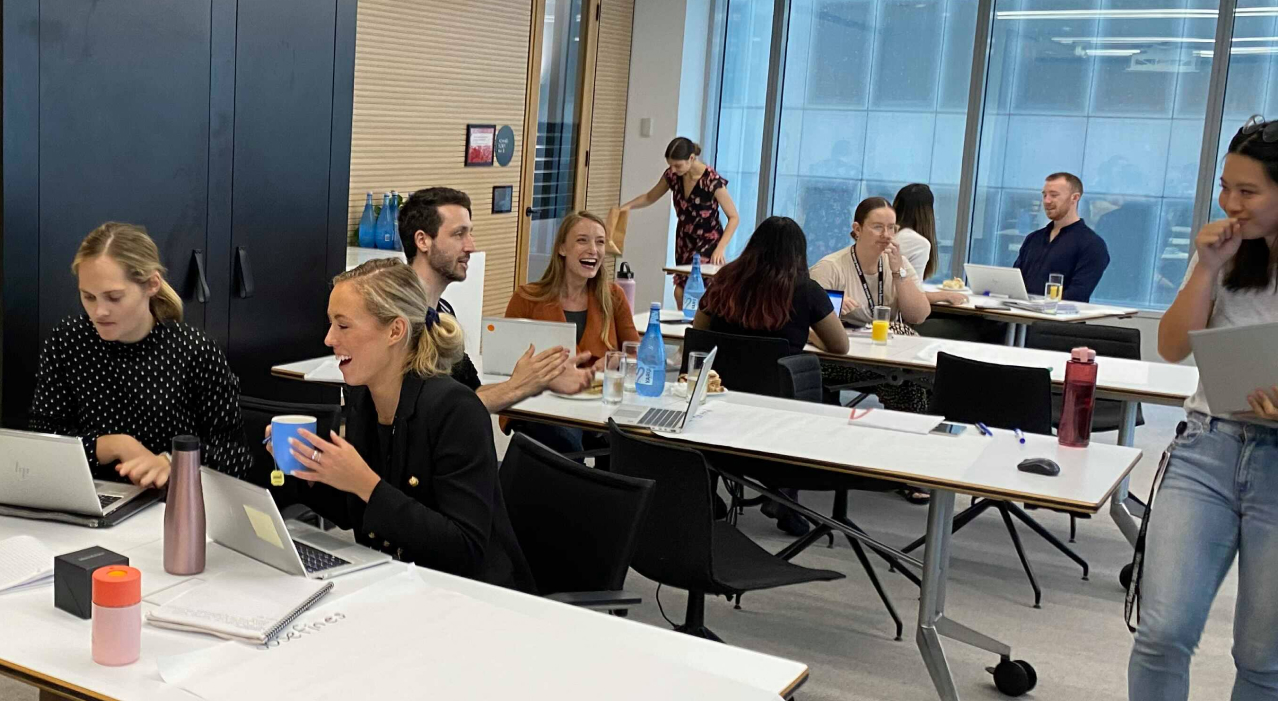Interview with Andrew Cunningham, Managing Partner of Innovation at MinterEllison
We sat down with Andrew Cunningham, Managing Partner of Innovation at Australia's largest law firm, to find out how they do innovation.
A self-described ‘lifer’, having started out as a summer clerk over 30 years ago, Andrew is the firm’s innovation leader, responsible for setting and implementing its overarching innovation strategy.
In this interview, Andrew shares what innovation looks like at MinterEllison, how Josef and automation has empowered their legal professionals and tips for firms wanting to try new things.
You’ve been at MinterEllison for over three decades. What is your role now?
Since 2014, I’ve been the innovation leader at MinterEllison where I’m responsible for overseeing the development of our innovation strategy and the execution of that strategy. I’m focused on bringing together the different innovation initiatives within the firm so that our 2,000+ team of legal professionals have a clear vision for our future. Some of my partners have said that I have the best job in the firm and I think they could be right!

"Hundreds of Josef bots have been built by the MinterEllison team."
You practiced for over 30 years as a lawyer. What drew you to your current role as innovation leader?
I’ve always had an interest in innovation in the legal domain. My appointment as Managing Partner of our Sydney Office in 2007 provided me the opportunity to begin to experiment. I believed that we could be doing better by doing things differently. Even ten years ago we ran experiments in design thinking with our partners. I’ve always had a desire to look for the competitive advantage and was happy to take some risks to try something new.
Being in the innovation leadership role for a few years now, how would you describe the innovation agenda at MinterEllison?
Innovation here is about achieving tangible results. We see it as an important element supporting our Purpose which is to create lasting impacts with our clients, our people and for our communities. We’re not doing it because we feel that we have to do something about innovation to be taken seriously; we’re much more interested in results. I’ve seen that, within law firms, there can sometimes be cynicism about new things. For that reason we put together a framework to make it real. We see innovation falling into four types: service innovation (innovation in the type of services we provide), delivery innovation (innovation in how we deliver those services), execution innovation (innovation to achieve optimal efficiency) and pricing innovation (to provide clients with pricing models that represent value for them).
The foundational piece is that we know we need to create a sustainable innovation capability and culture throughout the firm. Innovation is from the top down, bottom up and everything in between. A few years ago we started with that framework, and now I’m blown away by the energy with which that’s been taken up and the achievements that have been made across the firm in those years.
MinterEllison’s commitment to ‘distributed innovation’ really stands out – you bring everyone on the journey in a meaningful way. Why is this so important?
If an organisation is going to be innovative, then it has to have a broad ranging capability to be innovative and it has to have a culture that fosters innovation. That is particularly important in professional services where you have so many people who are involved in service delivery and who have direct contact with clients. Two-thirds of our organisation are delivering services to external clients every day and the other third is delivering services and having daily contact with internal clients.
Everyone is in a position to help us identify what we could be doing better. We don’t want an isolated group of people whose job is to be innovative. We want everyone to be the innovation committee; everyone is empowered, comfortable and encouraged to come up with new ideas. We say to our people. “It’s your job to ask ‘what if?’ or ‘what if we try it this way?’” That’s how we identify ways to become more innovative. I think most people want to participate, we need to help them feel comfortable doing so.
Josef and MinterEllison have worked together for some time now. What is Josef to you?
For close to 12 months now, it’s been a partnership – not a vendor-customer or us-and-them relationship – and that’s been crucial to its success. We have shared objectives along with empathy and an understanding of what each of us wants and needs to achieve.
It’s been a very productive relationship. Josef fits well into our strategy because it’s an inclusive and broad-ranging platform that’s accessible to all of our people – our client facing professionals as well as our internal business support professionals. It’s relevant to everyone in our firm.
It has been a very easy platform for people to develop a level of comfort with. They can quickly build confidence and it’s capable of being pointed at all of the challenges we face in the firm which are two really important benefits for us.

"It’s not only the big innovation projects that count, it’s all the little improvements made almost every day."
So you’ve been using automation at MinterEllison for a while. Why do you think automation is important for the legal profession?
Automation is of foundational importance to the legal profession, and professional services generally. There is a certain amount of what we do, which like many other endeavours is relatively repeatable, and we have an obligation to do that type of work as efficiently and expertly as we can.
Where work can be automated, it gives us the ability to do that work more cost efficiently. It frees up our people to do higher and better work than the piece that’s being automated. It helps to improve the quality and consistency as well. Some of the more mundane tasks that are more amenable to automation are often the tasks that can be overlooked or forgotten. Automation improves quality control of such tasks. Construct a chatbot to deal with a mundane task – the answers are coded and they need to be answered before you can move forward – and it leads to efficiency, quality and a better experience for our people.
What has been the impact of using automation and Josef at MinterEllison?
Because we made Josef available to every person in the firm, we invited them to experiment with Josef and to look at creating chatbots for the parts of the business that they work in. And because of that, hundreds of Josef bots have been built by the MinterEllison team.
The range of chatbots that have been created and the challenges they’ve been created to solve has been really broad. A number of the bots have been developed to more accurately and efficiently solve legal challenges.
This includes a bot which provides information about statutory leave entitlements across the country, a bot which determines whether a company is eligible for charitable status and then generates the relevant documents, and a bot which provides very specific answers in relation to superannuation law, which would otherwise require a lawyer to look at hundreds of pages of documents issued by the tax office.
Also, some of these bots were created by our summer clerks in a recent ‘chatbot sprint’ we organised. They created several bots in a short space of time after a few training sessions in logic and innovative thinking, and just a half-hour introduction to the platform. Some of these bots turned out to be incredibly complex, and our tax group say one in particular could save significant time each week.
If you could give one piece of advice to a firm starting out on their innovation journey, what would it be?
Suspend the disbelief. By disbelief, I mean cynicism. I also think there are attributes of our firm that have helped us greatly, particularly our firm’s entrepreneurial culture and the active support of the firm’s leadership. We also have the best Chief Digital Officer in the industry in Gary Adler, and he has built a fabulous team of ‘can do’ technologists.
We’ve got a clearly articulated vision of innovation which is practical and aligned to tangible outcomes. Rather than it being something ethereal, we engage everyone in it and innovation is happening every day. It’s not only the big innovation projects that count, it’s all the little improvements made almost every day. We’re in a mature industry and we must celebrate the incremental innovations, not just the big ones that might be more planned and have a bigger splash.
All of those things together have been the secret of our success.
